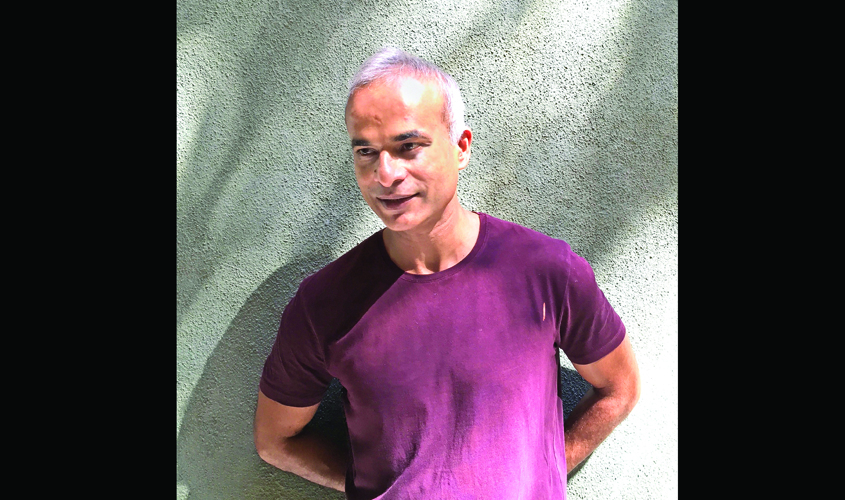Q. Some novelists tend to steer clear of using overtly political themes in their work, while there are those, like you, who get most of their material from our social and political realities. How important, and challenging, is it for a novelist in today’s world to delve into political topics head-on?
A. Normally I would have steered clear of politics. Compared to the many other things that a modern novel can deal with, politics is too simple. But when I began working on the novel—in 2014, politics had clearly become a psychiatric condition, it was creating vast delusions and passions. Now if when I say this if we are thinking of only Modi and his followers we would be wrong. There was the other side which was elevating paranoia and nobility to nutty levels. I found it all very interesting. I also knew that the price I would pay is to be misunderstood by my core readers, who want to be spared from politics, who seek refuge in the novel to be away from news. I say I would be misunderstood by them because they would think a ‘political novel’ is about politics. It is not true. A novel is not a novel unless it deals with people, or something that resembles people. Ultimately, Miss Laila… is like my other two novels—it is about what goes on inside the minds of people.
Q. How much of what you write in your novels is derived from your experiences as a journalist?
A. The only thing I derive from journalism is the confidence to begin to study a vast spectrum of subjects, and that nothing is what it seems, and that self-righteousness is the most boring thing in the world, and lastly this—you can say many important things but all that will be useless if you do not know how to say it. Everything that can be said has already been said. What is the new is how it is being said.
Q. Does journalism ever become an impediment to writing fiction?
A. It is a huge impediment to me in two ways. I earn a lot of goodwill through my novels, which I lose through my journalism. The second is worse—readers assume everything about all the characters are me. That diminishes the novel. I envy novelists whose views are never known. Maybe I am plotting to slowly go back to that level of obscurity.

Q. On the other hand, as a novelist-journalist, have you ever found it easier to articulate certain inconvenient truths through fiction—truth that would have been considered out of line in, say, a nonfiction book or a newspaper column?
A. Nothing is out-of-line. And you cannot really hide in fiction. Readers know. Also, both journalistic writers and novelists and people who are both have a choice to say what they believe in. The price we pay sometimes is isolation but if we find and preserve the few people who are willing to love (this preservation thing is a lot of hard work) then we can survive the consequences of speaking stark no-bullshit interpretations of our times.
“The only thing I derive from journalism is the confidence to begin to study a vast spectrum of subjects, and that nothing is what it seems, and that self-righteousness is the most boring thing in the world, and lastly this—you can say many important things but all that will be useless if you do not know how to say it.”
Q. Your previous book, The Illicit Happiness of Other People, came out five years ago. Did it take you all this long to write Miss Laila…? And has this been a difficult book to write?
A. This was a difficult book to write chiefly because I wanted to use very sparse prose, and I found the story and the characters very complex. Readers tell me that they were able to finish the book in five hours flat. I have heard this number so many times. They think there is something breezy about the novel but it was constructed painstakingly.

Q. A film adaptation of Miss Laila… is now in the works. Are you working on the film’s screenplay yourself? If not, how do you ensure that the essence of your novel isn’t lost in its film version?
A. There is an exquisite filmmaker who is considering it and has verbally confirmed, and I am hoping that it works out. I have an alternate ending for the film version. Many things about the novel will certainly be lost in the film, but then it will gain many other things. I am someone who believes that the film should cheat on the novel. A bit, here and there, not too much.
- Advertisement -

